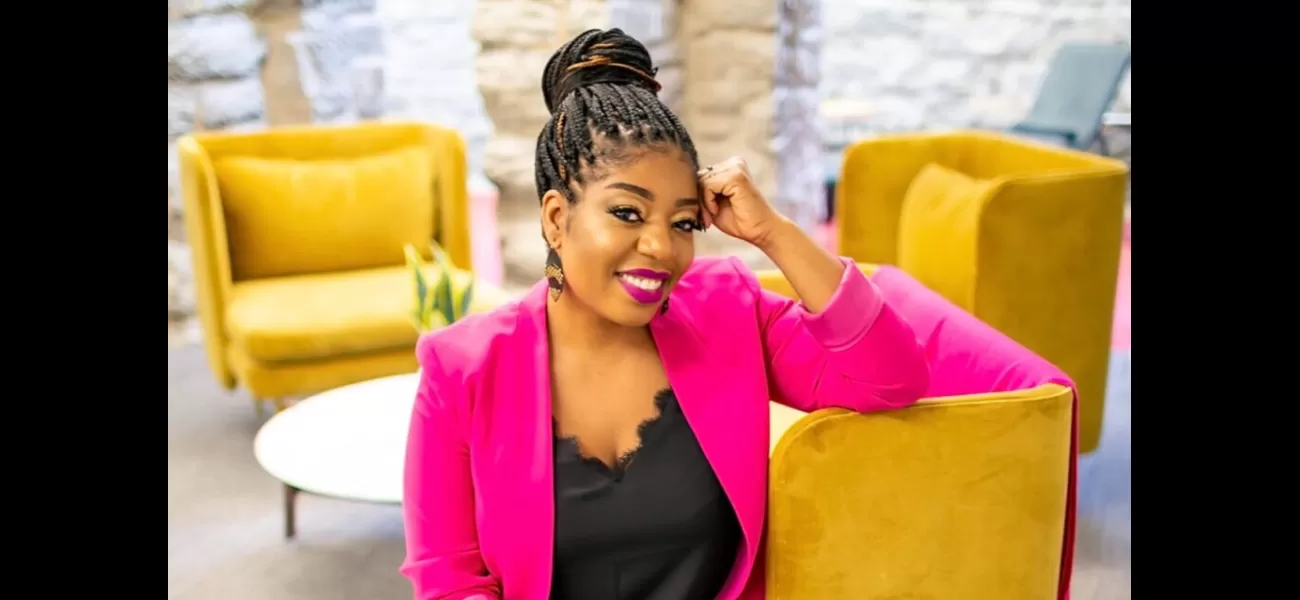Coach continues to advocate for social change despite businesses scaling back on diversity, equity, and inclusion initiatives.
Hodge wants to teach people how to practice anti-racism in their jobs.
June 7th 2024.

The issue of equity in the workplace and business is currently facing a lot of criticism. It wasn't too long ago when companies, amidst the uproar against police brutality, made promises to promote diversity, equity, and inclusion. These promises were not just limited to monetary donations, but also included the hope of equal opportunities for all. However, it seems that this is no longer the case. Many prominent brands have scaled back their efforts towards DEI. In fact, Florida's Board of Education recently made a decision to prohibit colleges and universities from using state and federal funds to support DEI programs.
This has caused a major setback in the once promising path towards a more just and equitable future. However, this does not mean that the individuals within these companies have lost their dedication towards promoting diversity. This is where Seena Hodges, also known as "The Woke Coach," comes in.
Hodges has made it her mission to educate people about anti-racism practices in the workplace. Her newly released book, From Ally To Accomplice: How To Lead As A Fierce Antiracist, delves into both individual and collective efforts that can lead to reform and revolution in the workplace. BLACK ENTERPRISE had the opportunity to speak with Hodges about her work, her book, and the ongoing practice of anti-racism in the workplace.
When asked about her background, Hodges explained that she is the founder and CEO of a company called The Woke Coach. She shared that many people have approached her, expressing their desire to become better individuals and their eagerness to learn more about anti-racism. However, they often end up feeling lost and not knowing where to start.
The conversation then shifted towards what anti-racist work looks like in the office space. Hodges pointed out that, unfortunately, in most workplaces, DEI efforts fail to specifically address issues related to anti-racism. She emphasized the importance of having open and honest conversations about race, racial identity, and cultural practices in the workplace. This creates an environment where people can openly discuss microaggressions, their experiences with them, and how to prevent them.
Hodges was then asked about why she chose to use the term "woke" in her moniker, despite its current negative connotation. She explained that language is constantly evolving and imperfect. The term "woke" has been around for over a century and is meant to symbolize the awakening of society to social injustices and challenges. She believes that if we allow people to constantly change the meaning of words, we will never be able to address the issues that affect us all.
The conversation then touched upon the fact that DEI initiatives are being dismantled in many parts of the country. When asked how companies can still implement these practices without funding, Hodges suggested that they utilize their professional development budgets. This could include things like book clubs or brown bag lunches focused on DEI. She also stressed the importance of recognizing that a company's budget reflects its values.
Hodges was also asked if she is involved in any political work to further her message. She shared that their work primarily focuses on increasing self-awareness and personal responsibility. She believes that once people are aware and understand the importance of anti-racism, they will be more motivated to take action and make a change.
The conversation then shifted towards the "hard truths" that we have yet to face in the workplace. Hodges highlighted the fact that, despite it being illegal, racism still exists in the workplace. She also emphasized the importance of recognizing and adapting to the changing demographics of the workforce to ensure that everyone has equal opportunities for success. Lastly, she acknowledged that sometimes, even the leadership in a company can be a barrier to creating an inclusive environment.
When asked about something new in her book that can help further the current dialogue, Hodges shared that her book is designed to help people create an actual practice of anti-racism. She believes that making something a habit is key in creating lasting change. Her book also helps readers identify areas that are important to them and how they can use their own power and privilege to create a more equitable environment for those around them. This, she believes, is the new aspect of her book.
In conclusion, Hodges' work serves as a reminder that the fight against racism is far from over. It requires constant effort and a willingness to have uncomfortable conversations. But with determination and a collective effort, we can create a more just and equitable workplace for all.
This has caused a major setback in the once promising path towards a more just and equitable future. However, this does not mean that the individuals within these companies have lost their dedication towards promoting diversity. This is where Seena Hodges, also known as "The Woke Coach," comes in.
Hodges has made it her mission to educate people about anti-racism practices in the workplace. Her newly released book, From Ally To Accomplice: How To Lead As A Fierce Antiracist, delves into both individual and collective efforts that can lead to reform and revolution in the workplace. BLACK ENTERPRISE had the opportunity to speak with Hodges about her work, her book, and the ongoing practice of anti-racism in the workplace.
When asked about her background, Hodges explained that she is the founder and CEO of a company called The Woke Coach. She shared that many people have approached her, expressing their desire to become better individuals and their eagerness to learn more about anti-racism. However, they often end up feeling lost and not knowing where to start.
The conversation then shifted towards what anti-racist work looks like in the office space. Hodges pointed out that, unfortunately, in most workplaces, DEI efforts fail to specifically address issues related to anti-racism. She emphasized the importance of having open and honest conversations about race, racial identity, and cultural practices in the workplace. This creates an environment where people can openly discuss microaggressions, their experiences with them, and how to prevent them.
Hodges was then asked about why she chose to use the term "woke" in her moniker, despite its current negative connotation. She explained that language is constantly evolving and imperfect. The term "woke" has been around for over a century and is meant to symbolize the awakening of society to social injustices and challenges. She believes that if we allow people to constantly change the meaning of words, we will never be able to address the issues that affect us all.
The conversation then touched upon the fact that DEI initiatives are being dismantled in many parts of the country. When asked how companies can still implement these practices without funding, Hodges suggested that they utilize their professional development budgets. This could include things like book clubs or brown bag lunches focused on DEI. She also stressed the importance of recognizing that a company's budget reflects its values.
Hodges was also asked if she is involved in any political work to further her message. She shared that their work primarily focuses on increasing self-awareness and personal responsibility. She believes that once people are aware and understand the importance of anti-racism, they will be more motivated to take action and make a change.
The conversation then shifted towards the "hard truths" that we have yet to face in the workplace. Hodges highlighted the fact that, despite it being illegal, racism still exists in the workplace. She also emphasized the importance of recognizing and adapting to the changing demographics of the workforce to ensure that everyone has equal opportunities for success. Lastly, she acknowledged that sometimes, even the leadership in a company can be a barrier to creating an inclusive environment.
When asked about something new in her book that can help further the current dialogue, Hodges shared that her book is designed to help people create an actual practice of anti-racism. She believes that making something a habit is key in creating lasting change. Her book also helps readers identify areas that are important to them and how they can use their own power and privilege to create a more equitable environment for those around them. This, she believes, is the new aspect of her book.
In conclusion, Hodges' work serves as a reminder that the fight against racism is far from over. It requires constant effort and a willingness to have uncomfortable conversations. But with determination and a collective effort, we can create a more just and equitable workplace for all.
[This article has been trending online recently and has been generated with AI. Your feed is customized.]
[Generative AI is experimental.]
0
0
Submit Comment





